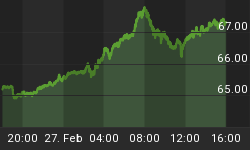Just because we have been favoring the euro over the U.S. dollar in recent years doesn't mean we believe everything is perfect in Europe. The rejection of Irish voters of the latest attempt by the European Union (E.U.) to streamline its decision processes highlights a fundamental weakness: the inability of European politicians to communicate with its citizens.
| Merk Insights provide the Merk Perspective on currencies, global imbalances, the trade deficit, the socio-economic impact of the U.S. administration's policies and more. Don't miss an Insight: Sign up for our Newsletter The Archive: Read past Merk Insights | |
In 2005, Dutch and French voters declared the new European Constitution dead by rejecting referenda. In the days leading up to the vote in France, their president at the time, Jacques Chirac, appeared on TV and told his citizens that it is their duty to approve the treaty and great harm will be done if anyone dared to vote no. This sort of bullying tactic has been the modus operandi in France for years; this time around, it didn't work.
With constitutional reform dead, European politicians devised an alternative to find a way to govern their 27 member states: the Lisbon Treaty, a reform package that achieves many of the same goals, such as negating the need for unanimous votes on many issues. Key aspect of this treaty was that it did not require a referendum to be held in most member states. The idea is straightforward: if the public cannot be convinced, do not ask the public.
Now in Ireland, the one state in the European Union many may argue has benefited the most from membership in the E.U. has rejected the new treaty by referendum; it's the only state that requires a referendum; parliament decides in the other states.
Ireland's rejection shows that European politicians simply have not learned their lesson. A representative democracy can only represent their citizen if they communicate with them. Politicians must learn to both listen (first) and speak (second). There is a valid criticism that some U.S. politics may be based too much on polls, but that does not justify retreating to an ivory tower to conduct European business. The White House in Washington may be one of the world's best-known brands; it's a symptom that the U.S. is pretty effective in communicating with the public. Few know whether European politicians indeed work in an ivory tower or possibly in a sandstone tower (historic buildings in Brussels are made out of sandstone). It turns out that the European parliament meets in both Strasbourg and Brussels; both buildings suggest that they may be working from a glass cage (link to Strasbourg and Brussels buildings).
The lack of knowledge about European parliament's architecture is just a symptom of the lack of communication. Laws are passed that then have to be implemented by member states. In those states, it has become routine to 'blame' Brussels for any domestic ills. This happens in the U.S. as well, where blame is readily shifted by states to the federal government. But at least in the U.S., the federal government is fighting back with its own charm offensive. Depending on one's political persuasion, one may or may not like what comes out of Washington, but at least there's a dialogue. There are other challenges in the U.S., such that too small a portion of the population ever reads or views political news; but in Europe, where traditional evening news are still far more commonplace, European politicians fail in relaying their ideas to the public at large.
Voters in Ireland are sending yet another wakeup call to their elected representatives. Politicians better listen as populist politicians may seize the moment sooner rather than later to fill the gap.
In the meantime, what does it mean for Europe and the euro? Europe will never have a legislative and executive branch as effective as the federal government has in the U.S. Europeans like the resulting stability that most European member states have learned to cherish; Europeans don't like to have leaders that actually have power to get things done quickly, as they could overturn long cherished policies; the flip-side of that approach is, of course, that ill-perceived policies tend to live on.
Stability must not be mistaken with stagnation, which may result if the E.U. does not find an effective way to govern. We are not too concerned, as Europe has been around for a long time and will continue to be around; but we don't see a reason why Europe must find its way within a year or two - constitutional reform, even when packaged as "merely" a treaty, deserves to be done right. And, more importantly, the citizens of Europe deserve to be part of the process. When we raised similar issues in 2005, I was told that the issues at hand were too complex to be discussed with the public. When you treat your citizens like babies, don't be surprised if they throw a tantrum from time to time. More to the point, our outlook on the euro has not changed; any temporary weakness may be a buying opportunity, just as it was in 2005.
We manage the Merk Hard and Asian Currency Funds, mutual funds seeking to profit from a potential decline in the dollar by investing in baskets of hard and Asian currencies, respectively. To learn more about the Fund, or to subscribe to our free newsletter, please visit www.merkfund.com.















